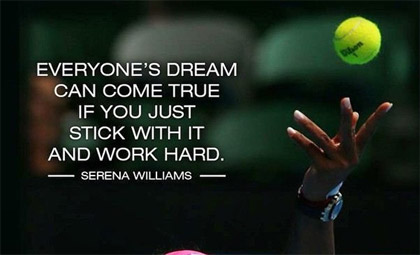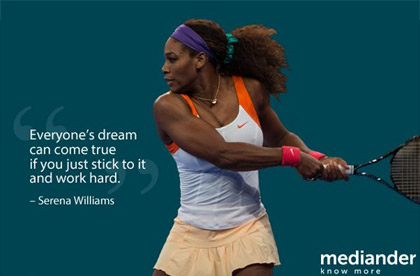By Art Bailey SPHR
From his work Good to Great, Jim Collin's bus metaphor has become renowned in business circles. Specifically referring to the people on the bus, he writes, "If we get the right people on the bus, the right people in the right seats, and the wrong people off the bus, then…" p.41. He refers relentlessly throughout his work to "best" people, "great" people, "A" players. So we take his advice and hire the best accountant, engineer, roofer, manager, assistant, teller, plumber, etc. based on their resumes, usually because of their demonstrated knowledge, skills, and abilities (KSA's). We follow all the rules: hire the best we can afford; validate their prior performances; even compare them to the requirements of a job description. We then expect great performances from these "best" people. Too often to our utter disbelief, this "best" person fails and we are at a loss why.
Great KSA's often lead us to make what we believe to be great talent acquisitions. I had a client a few years ago whose business was growing rapidly and the financial side was getting out of hand particularly in Accounts Receivable (AR). He interviewed and hired an accountant with several decades of significant financial work to become the Finance Director with specific instructions to get the ARs up to date. Within two months, the company almost folded because they weren't collecting on accounts that now were in the arrears to the cumulative tune of hundreds of thousands of dollars. When confronted by the owner, the Finance Director told him, "I'm not comfortable confronting other companies about their past due accounts." Really? How did he miss that!
As I work with companies and their talent acquisition efforts, I have come to several conclusions: there are many applicants available who have the ability to accomplish almost any task required, and that very few of them can perform well in any particular space. My clients are from many markets; general contractors, accounting services, non-profits, trades such as plumbers, social media consultants, etc. I have concluded that the type of business doesn't matter. Collins shares stories from many types of businesses.
Collins goes on to say that "the best people don't need to be managed, (they need to be) guided, taught, led – yes. But not tightly managed." What I believe Collins is alluding to is that these "right" people are capable of self-managing, meaning they do the right things at the right time for the right reasons. All employees have three questions to answer on a daily basis about the work they are responsible to accomplish: of all the work I have to do today, what is more important to the overall success of this organization, what is less important to the overall success of this organization, and what is not important at all to the success of this organization. My question for years has been, "Why do some employees do the right things, at the right time when others just as capable, and maybe even in the same work group, don't?"
My experiences have drawn me to the conclusion that significant KSA's are not sufficient for great performances. KSA's might be only as important as 40-50 percent of the "fit" for any particular employee in any particular organization. I now believe that just as or more important than technical job requirements (relevant KSA's) is the cultural fit (personality and values). In the 1970's, along with the age of the MBA, organizations subjected themselves to a process called "values clarification". I believe it arrived on the corporate scene before its time because it became one of many management fads that came and went with regularity during those years leading up to the quality improvement movement two decades later.
I believe the most important question for any business is not what are we doing or how are we doing it. Rather, I believe the most important business question is Why Are We Doing It? Why connotes values, passions, greater good thoughts. Every member of an organization has their own individual set of core values (the very core I refer to as non-negotiable values) as does the leader. Our passions virtually emanate from these core values. Activities that reflect these values are the ones we are most committed to. The pertinent question then is what is driving the why in this organization. If the why is clear, then others can determine if their why's line up with the organization's why. When this occurs, then commitment to the "cause" becomes the driving force behind an employee's behavior which is at a higher order than a commitment to the "task."
When members of an organization can connect their why's to the organization's why, then those members tend to self-manage doing the right things, at the right time, for the right reasons. Now we know who the "right" person is to get on the bus. Finding the "right" seat is a topic for another day.
Mr. Bailey is President of Trust House HR, a Strategic Human Resource Consulting Service. Trust House HR partners with clients to develop strategic organizational and Human Resource initiatives. He has served for more than 30 years in multiple corporate and non-profit leadership roles. He is a University Adjunct Professor of Business and Human Resource Studies.
Mr. Bailey holds a Master's Degree in Human Resource Management from Nova Southeastern University.
By Ronke Lawal,
PR and Marketing Specialist

On July 11th 2015 Serena Williams beat Spain's Garbine Muguruza to win Wimbledon for the sixth time, bringing the number of her major grand slam wins to 21! She is the holder of all 4 major tennis titles, an achievement that we can now proudly call "The Serena Slam".
As I watched her win the Wimbledon Championship I was convinced more than ever that we can all learn something from this phenomenal woman. As we admire one of the greatest sporting champions in the world I believe that it is just as important to learn from her greatness. We must find our own greatness and be a champion in our own lives, whatever it is that you are trying to achieve in business or in life, you can be just as successful in your own right.
Here are just a few things that I believe we can learn from Serena:
1. Never Give Up.
We hear this ALL THE TIME, but how many of us really understand what this means? Never giving up means that even when you lose you have to keep on trying. If there's something in your life that you are trying to accomplish but challenges and barriers keep getting in your way, take the time to assess a new way of thinking or find a new strategy. Quite often people give up on their goals because of failures and losses along the way but it is not the goal that is impossible, sometimes it is the strategy of achieving that goal that is not working. You have to learn from a loss or failure and use it to motivate you further. When Serena loses a game she doesn't focus on the loss as a disadvantage she sees it as a chance to work on being even better and finds a way to win.
2. Be Gracious and Grateful When You Win.
Even when you know you are a winner be grateful for your wins in every aspect of your life. Wherever your success takes you, gratitude and respect to all those who have been your cheerleaders and supporters throughout your life is so important. Gratitude leads to abundance and it is also a sign of true inner beauty in my opinion, which is one of the things I admire most about Serena.
3. Do Not Hide Your Gifts.
When you know you are great, there is no need to apologise or shy away from your own greatness. The world deserves to see how great you are, the world wants to share your gifts. This is something I am still learning to be honest but watching Serena reminded me that I have my own gifts that I need to start sharing and I am sure you have them too. Very often it feels like bragging or showing off but it isn't showing off, it's showing the world how great life can be if we all shared our gifts consistently and honorably.
4. Have Fun When You Win
Have fun and enjoy your journey, of course there will be stressful and challenging times but have fun along the way. There's nothing wrong with enjoying the moment, sometimes we take life a little bit too seriously. It's important to take a moment to just to have fun when you're winning and do a little dance when you do win...
5. Be Yourself!
Yes sometimes we have to play the game, literally and figuratively, but in everything that you do stand firm to your own core values. No matter how successful you become in your business or career being true to who you are is essential because there will be moments when the world will try to define who you should be on their own terms. Serena faces the media gaze and pressures more than most but she continues to stay focused and stays true to herself. Define yourself and your success based on your own values.
6. Believe in Yourself
This is one of the most challenging but the most essential factors in order to achieve success. You have to believe in yourself. You have to visualise your success and truly believe that you are worthy of accomplishing your wildest dreams. Both Serena and Venus Williams have stated this on more than one occasion and they are champions. If you want to win you have to see yourself as a winner and work towards it.
7. Do The Work
There is no great success that can ever be achieved without hard work.
It is very simple. You cannot expect to achieve Serena's success if you do not put in the work. Whatever it is you are seeking to achieve in this world work HARD to get there. It is worth it in the end. I'm still working on it but I believe it.

This was originally posted on my personal blog:http://ronke-lawal.blogspot.co.uk/2015/07/7-ways-to-be-champion-like-serena.html























